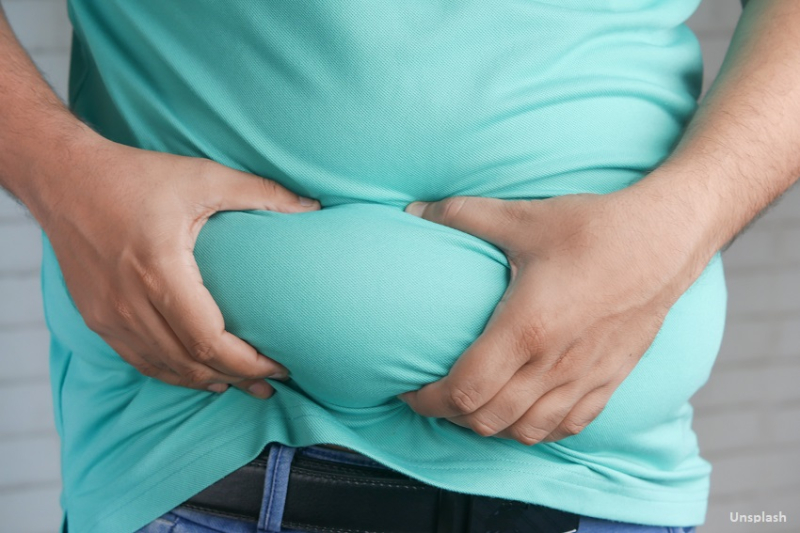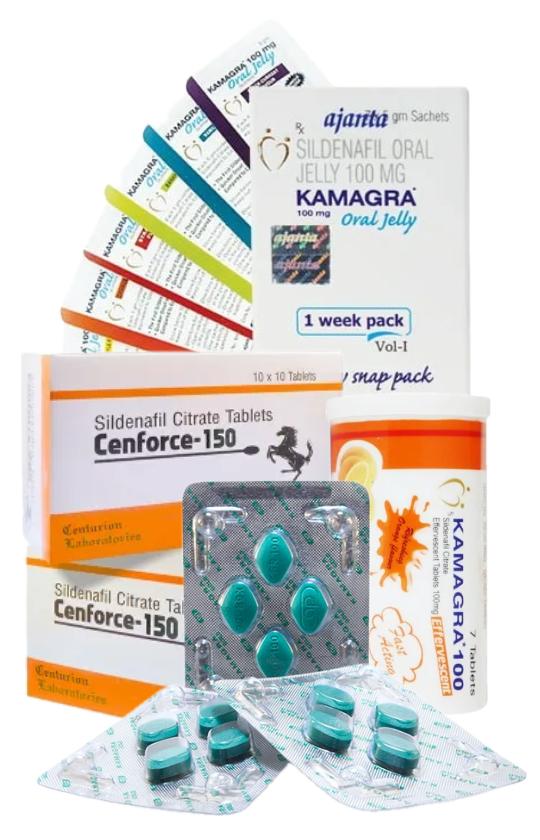Obesity and erectile dysfunction are serious health issues that affect millions of people worldwide. These conditions not only affect the body but also have profound impacts on mental health and relationships. This article will explore the connection between obesity and erectile dysfunction, highlighting the importance of understanding and addressing these issues for overall well-being.
Overview
- Introduction
- Prevalence of obesity and erectile dysfunction
- Understanding the link between obesity and erectile dysfunction
- Preventing obesity
- Fighting obesity
- Treating erectile dysfunction
- Conclusion
Introduction
Obesity and erectile dysfunction (ED) are increasingly common health problems worldwide. The rise in obesity has led to heart disease, diabetes, and high blood pressure. ED affects many men, causing emotional distress and strained relationships.
For more info on how erectile dysfunction impacts relationships and how partners can support each other, check out our article on ED: The Effect on the Partner.
Managing obesity can help prevent and treat ED, benefiting both physical and mental health. The following sections will explain how obesity and ED are related and provide strategies for effective management.
Prevalence of Obesity and Erectile Dysfunction
Obesity rates have been rising dramatically worldwide, with significant increases seen in the USA and Europe. In the United States, over 40% of adults are classified as obese, while Europe sees varying rates, with some countries reporting obesity rates above 30%. This surge in obesity has serious implications for public health, leading to increased incidences of related diseases such as heart disease and diabetes.
Erectile dysfunction is also a widespread issue, affecting about 30 million men in the USA alone. Studies show a strong correlation between obesity and the prevalence of erectile dysfunction. Men with obesity are more likely to experience ED due to factors like poor blood circulation and hormonal imbalances, both of which are aggravated by excess body weight.
Obesity significantly increases the risk of developing erectile dysfunction. Excess weight can lead to conditions like atherosclerosis, which restricts blood flow to the penis, making it difficult to achieve or maintain an erection. By addressing obesity through healthy lifestyle changes, individuals can reduce their risk of ED and improve their overall quality of life.
Understanding the Link Between Obesity and Erectile Dysfunction
The connection between obesity and erectile dysfunction (ED) can be explained through various physiological mechanisms. One key factor is cardiovascular health; obesity often leads to hypertension, or high blood pressure, which can damage blood vessels and reduce blood flow. Adequate blood flow is essential for achieving and maintaining an erection, so any impediment can cause ED. Additionally, obesity can lead to insulin resistance and type 2 diabetes, further compromising vascular health and erectile function.
Excess weight also impacts hormonal balance, particularly testosterone levels, which are crucial for sexual health. Obese men often have lower testosterone levels, which can decrease libido and impair erectile function. Furthermore, fat cells produce estrogen, which can further reduce testosterone levels and exacerbate the problem. Alongside these physical issues, obesity can lead to psychological factors such as depression and low self-esteem, which can negatively affect sexual performance.
To boost testosterone levels and enhance libido, check out our articles on Increase in Testosterone Levels and Increasing Libido.
Prioritizing health by adopting healthier lifestyle habits can significantly reduce the risk of developing erectile dysfunction. Regular exercise, a balanced diet, and weight management not only improve cardiovascular health but also enhance hormone balance and boost self-esteem. If you are looking for effective solutions to combat erectile dysfunction, explore the range of sexual enhancer available in our eShop. By taking proactive steps and utilizing these resources, you can improve both your physical and sexual health, leading to a better quality of life.
Preventing Obesity
Preventing obesity is crucial for overall health and can significantly reduce the risk of erectile dysfunction (ED). A balanced diet rich in fruits, vegetables, whole grains, and lean proteins is essential. Avoiding excessive intake of sugary drinks, processed foods, and high-fat snacks can help maintain a healthy weight. In addition, both clinical and experimental studies have confirmed that regular exercise, such as walking, cycling, or swimming, not only aids in weight management but also improves cardiovascular health, which is vital for preventing erection problems.
For those interested in enhancing their sexual health further, check out our article on Exercises Against Premature Ejaculation to discover effective techniques and routines.
Practical tips for maintaining a healthy weight include setting realistic goals and tracking your progress. Incorporate physical activity into your daily routine, such as taking the stairs instead of the elevator or going for a walk during lunch breaks.
Meal planning and mindful eating can prevent overeating and help you make healthier food choices. Staying hydrated and getting enough sleep are also important factors in weight management and overall well-being.
Lifestyle changes play a significant role in preventing both obesity and ED. Quitting smoking and reducing alcohol intake can improve blood circulation and erectile function. Managing stress through relaxation techniques like yoga or meditation can also benefit your physical and mental health. By adopting these healthy habits, you can prevent obesity, enhance your quality of life, and reduce the risk of erectile dysfunction.
For those experiencing erection problems , our eShop offers a range of products containing potent active ingredients such as sildenafil. These ingredients are known for their effectiveness in managing erectile dysfunction (ED) by enhancing blood flow to the penis, helping you achieve and maintain an erection.
Fighting Obesity
Fighting obesity requires a multi-faceted approach that includes strategies for weight loss and management. One effective strategy is adopting a plant-based diet, which emphasizes whole foods like fruits, vegetables, nuts, seeds, and legumes. This type of diet is not only nutrient-dense but also helps in reducing calorie intake naturally. Another important aspect is incorporating regular physical activity that includes both cardiovascular exercises and strength training to enhance metabolism and burn calories.
Exercise routines should be tailored to individual fitness levels to ensure sustainability and effectiveness. Starting with low-impact activities like walking or swimming can be beneficial for beginners, gradually increasing intensity as fitness improves. Incorporating strength training exercises helps build muscle mass, which can boost metabolism and aid in weight loss. Consistency is key, so finding enjoyable activities can help maintain a regular exercise routine.
Support systems and resources play a vital role in fighting obesity. Seeking professional guidance from dietitians, nutritionists, or personal trainers can provide personalized plans and expert advice. Support groups or online communities offer encouragement, share success stories, and provide accountability.
Utilizing apps or journals to track food intake, exercise, and progress can also be helpful. With the right strategies and support, achieving and maintaining a healthy weight becomes more attainable and sustainable.
Treating Erectile Dysfunction
Treating erectile dysfunction (ED) requires a comprehensive approach that includes various medical and therapeutic options. One of the primary medical treatments involves the use of oral medications known as PDE5 inhibitors, which include sildenafil, vardenafil, and tadalafil. These medications help to relax blood vessels and increase blood flow to the penis, making it easier to achieve and maintain an erection. For those who do not respond to oral medications, other options such as penile injections, vacuum erection devices, and penile implants can be considered.
For more detailed information on various treatments and solutions, read our comprehensive guide on Healing and Remedying Erectile Dysfunction.
Psychological factors often play a significant role in erectile dysfunction, and addressing these through counseling and therapy can be highly effective. Cognitive-behavioral therapy (CBT) and sex therapy are two common approaches used to treat ED caused by psychological issues. These therapies help individuals and couples to understand and change negative thought patterns, improve communication, and reduce performance anxiety. In some cases, a combination of medical treatment and therapy provides the best outcomes.
For a deeper understanding of psychological causes of erectile dysfunction and effective tips for addressing them, check out our article on Psychological Causes of Erectile Dysfunction and Tips for Solving Them .
Erection pills remain a widely used and effective treatment option for ED. Sildenafil, vardenafil, and tadalafil work by inhibiting the enzyme PDE5, which regulates blood flow in the penis. Sildenafil and vardenafil usually start working within 30-60 minutes and are effective for about 4-5 hours, while tadalafil also takes 30-60 minutes to work, but lasts for up to 36 hours, offering more spontaneity. Before usage, always read side effects and especially contraindications.
Our customers highly recommend options from the Viagra Generics category, which contain the active ingredient sildenafil, including Cenforce100 or such Kamagra pills as Kamagra Original and Kamagra Jelly (also searched as Kamara Oral Jelly, Camagra Oral Jelly or Kamagra Oral Gelly). More information about this product you can find in the article
The most popular products in our Cialis Generics category, which contain the active ingredient tadalafil, are Vidalista 20, Vidalista 40 and Tadarise.
For those seeking solutions that address both erectile dysfunction and premature ejaculation, product Super Kamagra, which combines sildenafil and dapoxetine, is highly recommended. For more information on managing PE, check out our article on Premature Ejaculation.
Switching to our products means choosing quality and effectiveness at an affordable price.
to explore a wide range of solutions tailored to your needs and regain your sexual confidence!
Conclusion
In summary, obesity and erectile dysfunction (ED) are interlinked health issues that can significantly impact overall well-being and quality of life. We explored the rising prevalence of both conditions, the physiological mechanisms connecting them, and various strategies for preventing and managing obesity. Understanding these connections helps individuals make informed decisions about their health, emphasizing the importance of a balanced diet, regular exercise, and healthy lifestyle choices.
Taking proactive steps in managing weight and seeking treatment for ED can lead to substantial improvements in physical and sexual health. Adopting healthier eating habits, engaging in regular physical activity, and considering psychological counseling or therapy for underlying mental health issues are all crucial. Additionally, effective treatments like PDE5 inhibitors, including sildenafil , vardenafil , and tadalafil , offer reliable solutions for managing ED.
Embracing a healthy lifestyle not only enhances sexual health but also promotes overall well-being. By prioritizing weight management and addressing erectile dysfunction with appropriate treatments, individuals can experience improved confidence, better relationships, and a higher quality of life.
Commit to these changes today for a healthier, happier future.
Read also: Impotence
Author: Jason Smith
Sources:
https://www.ncbi.nlm.nih.gov/pmc/articles/PMC6479091/
https://www.ncbi.nlm.nih.gov/pmc/articles/PMC10101565/
https://www.nhlbi.nih.gov/health/overweight-and-obesity
https://pubmed.ncbi.nlm.nih.gov/16753404/
https://pubmed.ncbi.nlm.nih.gov/19170860/
https://www.mayoclinic.org/diseases-conditions/premature-ejaculation/diagnosis-treatment/drc-20354905
https://www.urologyhealth.org/urology-a-z/p/premature-ejaculation
https://www.nhs.uk/conditions/ejaculation-problems/










